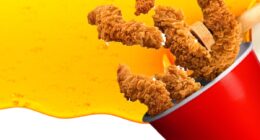
Stages Of Alcoholic Liver Disease
• Alcoholic fatty liver disease (steatosis) – According to the National Institute on Alcohol Abuse and Alcoholism, about 20 per cent of alcoholics and heavy drinkers develop fatty liver disease. Alcoholic fatty liver disease occurs when there is an increased build-up of fat in the liver due to heavy alcohol use. There are no obvious symptoms of fatty liver, but the liver becomes enlarged due to the fat accumulation.
• Alcoholic hepatitis – At this stage, there is an inflammation of the liver cells and if you develop this condition, you must stop drinking alcohol. The most common symptoms of alcoholic hepatitis are swollen liver, nausea, vomiting, abdominal pain, fever and jaundice. According to the National Institute on Alcohol Abuse and Alcoholism, if heavy drinking continues, about 40 per cent of alcoholic hepatitis cases will develop into liver cirrhosis.
• Alcoholic cirrhosis – It is the advanced stage of alcoholic liver disease. At this stage, the healthy liver tissues are replaced by scar tissues, disrupting blood flow through the liver and preventing the liver from working properly. The symptoms of alcoholic cirrhosis include redness on the palms caused by capillary dilation, shortening of finger muscles, white nails, liver enlargement etc. About 10 to 15 per cent of people with alcoholism will develop liver cirrhosis, as per the National Institute on Alcohol Abuse and Alcoholism [5].

Symptoms Of Alcoholic Liver Disease
• Nausea and vomiting
• Fatigue and weakness
• Poor appetite and weight loss
• Abdominal pain
• Fever
• Jaundice
• Itchy skin
• Fainting
• Edema
• Increased thirst
• Dark stools
• Red hands or feet
• Darkening or lightening of the skin
• Mood swings
• Confusion
• Changes in the sleep pattern
• Easy bruising

Complications Of Alcoholic Liver Disease
• Bleeding disorders
READ RELATED: How to live longer: Six ‘super’ ingredients that can add a ‘decade to your life’ – doctor
• Liver cancer
• Kidney failure
• Fluid build-up in the abdomen
• Enlarged veins in the oesophagus, stomach or intestines that bleeds.
• Excess pressure in the blood vessels of the liver.
• Mental confusion

Diagnosis Of Alcoholic Liver Disease
The doctor will first conduct a physical examination and check for redness on the palms, swollen abdomen, excess breast tissue and yellow eyes. Then the doctor will ask some tests to get done these include complete blood count test, liver function test, liver biopsy, endoscopy and imaging tests.

Treatment Of Alcoholic Liver Disease
• Alcohol abstinence – To reverse the early stages of alcoholic liver disease, you have to stop drinking alcohol, this is known as abstinence. If you have fatty liver disease, the condition can be reversed if you abstain from alcohol for at least two weeks. If you can’t stop drinking on your own, visit alcohol rehabilitation programs.
• Lifestyle changes – You should eat a healthy diet low in salt, stop drinking alcohol, quit smoking, maintain a healthy weight and take nutritional supplements.
• Medications – Corticosteroids such as prednisolone has been used to treat moderate to severe alcoholic hepatitis.
• Liver transplant – Patients with end-stage liver disease require liver transplantation because the liver loses its ability to function properly. Liver transplantation is only considered when people with alcoholic liver disease have completely stopped drinking for six months [9].

Prevention Of Alcoholic Liver Disease
• Consume alcohol in moderate amounts. Consume one to two drinks per day.
• Eat nutritious foods.
Common FAQs
Q. Is alcoholic liver disease reversible?
A. In the initial stages, alcoholic liver disease can be reversed and you have to stop drinking for two weeks to allow your liver functioning normally.
Q. How long can you live with alcoholic liver disease?
A. People who stop drinking completely tend to live longer compared to those who do not stop drinking. According to the National Institute on Alcohol Abuse and Alcoholism, the five-year survival rate for people with liver cirrhosis who stop drinking is about 90 per cent as compared to people who do not stop drinking which is about 70 per cent.
Q. Does drinking water help your liver?
A. Drinking water helps in flushing out the toxins from the liver. This will help the liver to detoxify itself.
Q. Can the liver repair itself after years of drinking?
A. Yes, once you stop drinking completely the liver will start functioning properly.
Source: boldsky blog



 Liver Cirrhosis: Causes, Symptoms And Treatment
Liver Cirrhosis: Causes, Symptoms And Treatment




